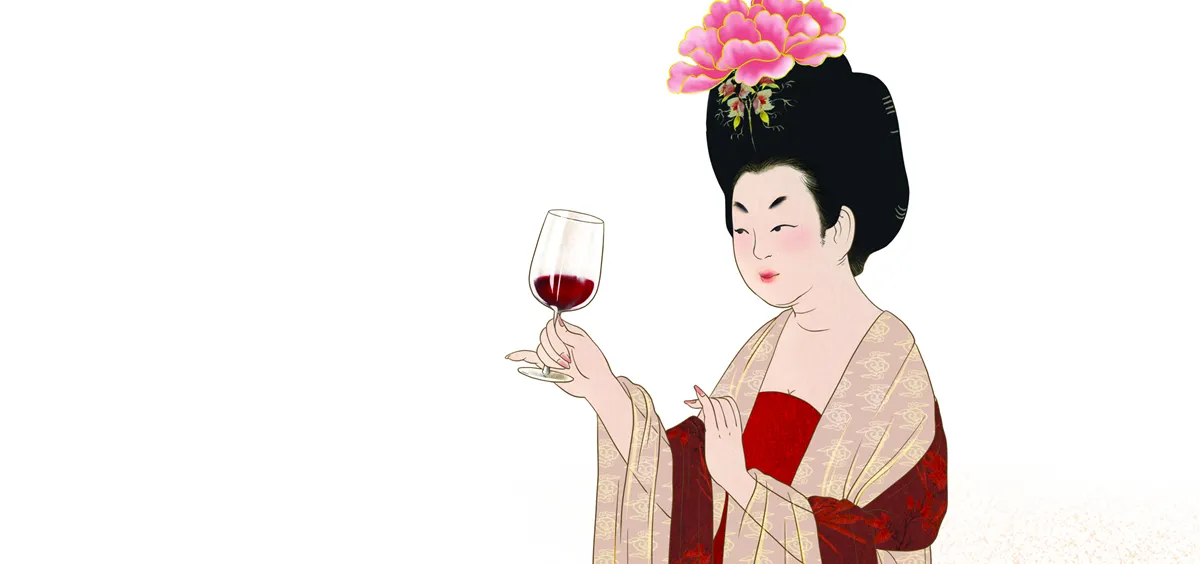A character to appreciate in all its varieties
“To observe the vast sky and survey all kinds of creatures on earth…is such a joy (仰观宇宙之大,俯察品类之盛……信可乐也),” the Eastern Jin (317 – 420) literati Wang Xizhi once reflected on a “spring outing” (春游 chūnyóu) that he took with friends in present-day Shaoxing, Zhejiang province, where they drank and composed poems amid the green mountains and clear streams.
A traditional way to celebrate the Shangsi Festival (上巳节) on the third day of the third lunar month, the spring excursion, also known as “spring exploration” (探春 tànchūn) or “stepping on the green” (踏青 tàqīng), has a history over 2,000 years in China. Today, it’s still common for schools, companies, and families to organize field trips every March or April to enjoy assorted scenery and appreciate the arrival of spring.
Those with some basic knowledge about the formation of Chinese characters may be able to guess the original meaning of 品 (pǐn), a pictograph consisting of three “mouth” (口 kǒu) radicals. Similar composite characters in Chinese all tend to indicate a great quantity of a certain thing—for instance, three people (人 rén) are a crowd (众 zhòng), and three trees (木 mù) make up a forest (森 sēn). Here, the 口 radical also indicates people, thus, 品 originally meant “a crowd of people,” according to the 2,000-year-old dictionary Explaining and Analyzing Characters.
Though the character’s form has remained unchanged since it first appeared in oracle bone script 3,000 years ago, 品 now describes physical items rather than humans, including food (食品 shípǐn), medicine (药品 yàopǐn), and literary or artistic works (作品 zuòpǐn). Adding 品 to a verb or adjective transforms it to the generic noun for related objects: for example, a “display item” is a 展品 (zhǎnpǐn, exhibit), and “rubbish items” are 废品 (fèipǐn, scraps).
The character is commonly used in the business world, which sells products (产品 chǎnpǐn) in many categories (品类 pǐnlèi) and varieties (品种 pǐnzhǒng). As consumers grow increasingly concerned with the quality (品质 pǐnzhì) of what they buy, many have turned to well-known brands (品牌 pǐnpái). However, it can be hard to distinguish between the authentic items (真品 zhēnpǐn or 正品 zhèngpǐn) and knockoffs (赝品 yànpǐn) or replicas (仿制品 fǎngzhìpǐn), especially in the antique and artwork market. Even the Qianlong Emperor of the Qing dynasty (1616 – 1912), a calligraphy and painting enthusiast, was said to have collected many fakes.
In ancient China, an emperor’s subjects were sometimes categorized as 上品 (shàngpǐn, top-grade) and 下品 (xiàpǐn, lowest grade). Northern Song (960 –1127) scholar Wang Zhu said, “万般皆下品,唯有读书高 (Every career is low-grade, and only studying to to become an official is superior).” This usage is believed to originate from an ancient ranking system for Chinese officials, from the first to the ninth 品. Even nowadays, low-ranking leaders in an organization may mockingly refer to themselves as a “ninth-grade ‘sesame’ official (九品芝麻官 jiǔ pǐn zhīmaguān).”
The character 品 also indicates the quality of people, or 道德品质 (dàodé pǐnzhì, morals and character), as in 大学生要有良好的道德品质 (Dàxuéshēng yào yǒu liánghǎo de dàodé pǐnzhì. College students should be virtuous). Similar Chinese expressions include 品格 (pǐngé, personality), 品德 (pǐndé, morality), and 人品 (rénpǐn, moral quality).
Superficial as it is, people often judge others’ virtue based on their behavior. An ancient idiom states that “棋品见人品 (Qípǐn jiàn rénpǐn. How a person plays Go reveals their personality).” Those who frequently regret their moves or get angry after losing are considered to have poor 棋品 (qípǐn, Go virtue). Similarly, 酒品差 (jiǔpǐn chà, poor drinking virtue) describes those who behave boorishly after drinking.
The phrase 人品 (rénpǐn), or its acronym RP, was also adopted by the gaming community as slang for luck. It’s now widely applied on the internet to explain good, bad, or unexpected outcomes in anything. For instance, you can blame losing your keys, getting sick, or failing an exam on an “RP problem (人品问题 rénpǐn wèntí),” whereas scoring a ticket to a sold-out concert is a sure sign of an “eruption of RP (人品爆发 rénpǐn bàofā).”
品 also serves as a verb, meaning “to drink” or “appraise.” 品茶 (pǐnchá, appreciating tea) is a refined way to describe drinking tea, and the verb usually implies artistic appreciation or special expertise. For instance, 品酒 (pǐnjiǔ) is to taste wine, and knowledgeable sommeliers are called 品酒师 (pǐnjiǔshī).
It’s also possible to appraise people, as in 那个人怎么样,你慢慢就品出来了(Nàgè rén zěnmeyàng, nǐ mànman jiù pǐn chūlai le. You’ll appreciate the nature of that person gradually). However, the idiom 品头论足 (pǐntóu-lùnzú, judging from head to feet) is pejorative, referring to someone who is judgmental or nitpicky, especially in regard to other people’s appearance or clothing. 品味 (pǐnwèi) refers to a person’s taste or quality of judgment, as in 她衣品很好 (Tā yīpǐn hěn hǎo. She has good taste in clothes).
As a Chinese saying goes, “Good wine fears no bush” (酒香不怕巷子深 jiǔxiāng búpà xiàngzi shēn)—that is, a product or person of excellent quality will certainly get a chance to shine. As Ming (1368 – 1644) poet Jingnuo wrote in her poem “On Autumn Orchid” (《咏秋兰》), “While famous individuals admire [the orchid] and use it for ornament, those in deep valleys have always known their virtues (名流赏鉴还堪佩,空谷知音品自扬).”
On the Character: 品 is a story from our issue, “Grape Expectations.” To read the entire issue, become a subscriber and receive the full magazine.













